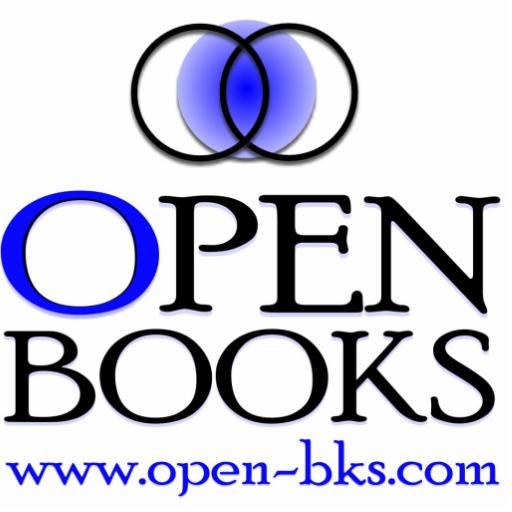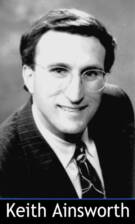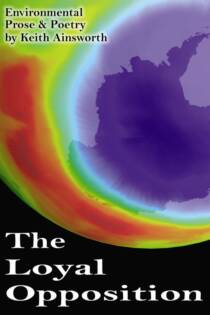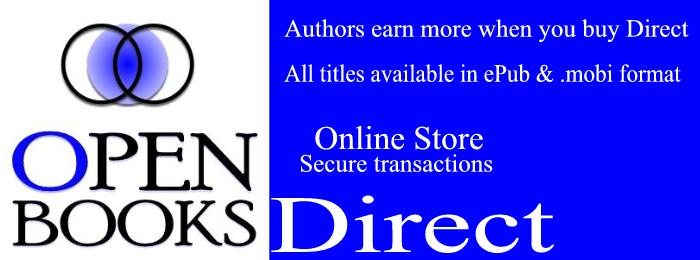©Moronic Ox Literary Journal - Escape Media Publishers / Open Books
Review
Review by Brett Busang
A Dandy Little Game, Slim McCulloch's homage to the fiction noir from which television shows like The Untouchables won a large and enthusiastic audience in the 1960's, is so deftly constructed that its often-cringeworthy incidents - which do not turn out very well for the novel's protagonist - are part of a seamless con-job, which is at the core of all good storytelling. It begins with a tinhorn gambler, Johnny Sharansky’s, run of bad luck, which is so spectacular that, after Johnny loses everything else, he decides to lose - or, rather, sell - his pants, his shirts, his socks, his pinstripes - everything but the kitchen sink he might, should his losing streak continue, never light up again. Yet with what a rag-picker pays him for the contents of his closet, he, Johnny, is able to resuscitate his dwindling fortunes, restore a self-confidence that is under assault even in his dreams, and get on his feet again. He makes bets on long odds, but he wins. He goes for broke and he’s rewarded. His best friend and bookie, Joe, is an essentially good guy (not in the sense of the “good guys” who are, in the novel, synonymous with the “wise guys” of today) who worries about his old friend, but must, for the most part, stand aside as Johnny makes his own decisions - which, in the tradition of small-time losers who get lucky now and then - leave a lot to be desired. When Johnny meets an attractive woman who is drawn to dangerous types, his ordinary spotty resume goes South, with such dire implications that we wonder not whether he'll get skinned by mob characters who specialize in the mostly invisible termination of human life, but when. Not only is a reckless gamble a lousy idea, it is likely to be a lethal one. A little guy can stage a stupid little robbery, but, when it happens in a place with hidden connections and territories that are watched with a routinely frightening sense of paranoia, no mistake can be overlooked and few slip-ups will go unpunished.
Aside from what happens in a novel that's structured along fairly conventional lines, it is how, through whom, and in what sorts of places, things "happen" that is the source of its power. McCulloch's Chicago - which will hide you for a time - will eventually expose you to the hot and uncomfortable glare of its own morality, which is as tawdrily expedient as a noonday "hit", but no more or less complicated than the electrical grid that lights up a blackjack table as well as a courtroom.
As with all fiction noir, there is forbidden fruit in McCulloch's two-sided morality tale. There are the high stakes everybody wants to get in on, but few understand well enough to negotiate with the swagger that will get them in and the intelligence to keep them out of harm's way. And there are people who are going to get hurt. You root for Johnny not because he's suave or skillful, but because he has a rat-like familiarity with rules he flouts one moment and obeys the next. He has an agreeable insolence that has seen him through, but he'll unfortunately need more than he can, or is willing to, muster. As the stakes get higher and higher, and people start to get nervous (or dead), things start to unravel and the fault-lines of a risk-everything mentality are relentlessly exposed. What happens in the end, however, turns the tables and a clip-light comes on. (If second acts aren’t possible in American lives, how is this happening?) Yet was the lark he, Johnny, planned to impress a slumming lady-friend worth it? If A Dandy Little Game is about no other thing, it is about that. And, possibly, how destiny can turn on a dime or dollar.
The novel’s seductiveness consists in its details. As a kid, Johnny hangs around White Sox players while cutting the classes that make no sense to him. Whatever they want (beer, cigarettes, likely bets), he manages to provide. These connections provide him with a kind of moral education, as well as a taste for the fast life that becomes, "to his sorrow", the casual addiction that will shape his every move. He meets good people, like Joe; and bad, which provide the novel with a kind of nearly silent majority. One of the most coldly fascinating characters is from respectable Evanston, the posh suburb from which Johnny's femme fatale, Margaret, comes running. He is her lawyer father, Charles Turner, who wants Johnny, after their affair has begun, to disappear and offers to pay handsomely for it. McCulloch is able, through dialogue alone, to draw a portrait of power and privilege, which rarely raises its voice, but is never less than deadly serious. (He is the “friendly” negotiator whose white gloves can be pulled off at any moment. And, toward the end of the novel, do. Stories in which the overtly brutal often reign let such people “go to bat” for them when they’re out of their element. In this case, however, the good lawyer is negotiating for himself. And pulling out all the stops.) There are the Jewish gamblers who congregate in the center field bleachers at Wrigley Field as they process bets that have a crazy, but compelling, logic. (One might say that the anti-Semitism that was one of the cornerstones of our culture in the 1940’s is never taken to task, but it’s noticed in such a way that we know it isn’t a good thing and realize that it has nothing at all to do with the personal failures or virtues of its victims. Margaret’s suitor is a Jew-hater with a goodly WASP pedigree, though, in a turnaround that is deliciously subversive, he is also gay.) There are slews of bartenders and landlords, many of whom have the wry intelligence that bends their words into little jokes about avoiding trouble and getting on. Yet it is the Chicago underworld – its trappings, its infrastructure, and its fascinating sprawl - that McCulloch delineates so impeccably. As such, it’s not only a major character in the book, as it presses readers’ faces to fly-specked windows, smoke-filled rooms, and hotel lobbies that smell no better than cut-rate shoe polish, it is a forceful presence that permeates every small decision (or significant betrayal) that guides the novel toward its softly victorious conclusion.
The cultural and techno-phenomena of the era are on constant, but inconspicuous, display. On one occasion, Johnny buys a “styptic pencil”, which my father used as a way of calming the blood-spurts that come of shaving too close. Victor Borge, an up-and-coming entertainer, is playing at a popular night-spot. Wing-tip shoes are the choice of our gaudy heroes. And gas ration slips determine the extent of one’s mobility. “Pull a Merkle”, an expression which would be lost on most of us, references a boneheaded play. (Due to a base-running error his manager, John McGraw, contested, Fred Merkle became the Bill Buckner of a hundred years ago.) For another sidelight regarding a national pastime that was as big in Chicago as it was in New York: because of a necessary shortage of able-bodied men, WWII fielded a lot of dreadful teams and the Chicago Cubs – which are disposed of without mercy – was one of the worst. The fact that Cubs’ players would be staying in the hotel in whose relative comfort Johnny starts out is telling. The Forties were a time that paid almost everybody, included sports’ stars, a living wage, which necessitated a second job when the season was done. And while Jewish slang has not faded from the national dialogue completely, the “meshuge’s” and the Oy vei’s” in the novel sound picturesquely obsolete.
McCulloch’s ear for dialogue informs every page, as does his sense of what “notes” to play and what to leave out. He never describes a scene in its entirety, but allows the reader to visualize something larger than a succession of small, but significant, details.
The notion of entertainment is often, among critics of serious literature, dismissed as a necessary aberration – or a plague. (It’s one of the reasons why comedies rarely win Oscars.) Yet fiction noir abounds in the sort of world-weary cynicism whose most palatable expression is the wisecrack. In dangerous places, a one-liner can make the difference between the crack of doom and a sense that better days might be around the corner. McCulloch employs wit and humor, not merely to leaven the gloom, but because people in bad situations are the ones who employ it the most liberally and should be commended for it. (It is no accident that the novel’s few “respectable” characters are humor-impaired.) As should Mr. McCulloch himself.
Moronic Ox Literary and Cultural Journal - Escape Media Publishers / Open Books Advertise your book, CD, or cause in the 'Ox'
Novel Excerpts, Short Stories, Poetry, Multimedia, Current Affairs, Book Reviews, Photo Essays, Visual Arts Submissions
Presents the Poetry of
Environmental Attorney
Keith Ainsworth
After dropping out of college (twice), Bill McCulloch went into journalism and had a 25-year newspaper career, capped by five years as the editor of a small New England daily. Before, during, and after that career, he moonlighted as Windy City Slim, a performer of traditional American music.
Among other literary projects, he collaborated with folklorist Barry Lee Pearson on a critically praised book, Robert Johnson: Lost and Found (University of Illinois Press, 2003).









